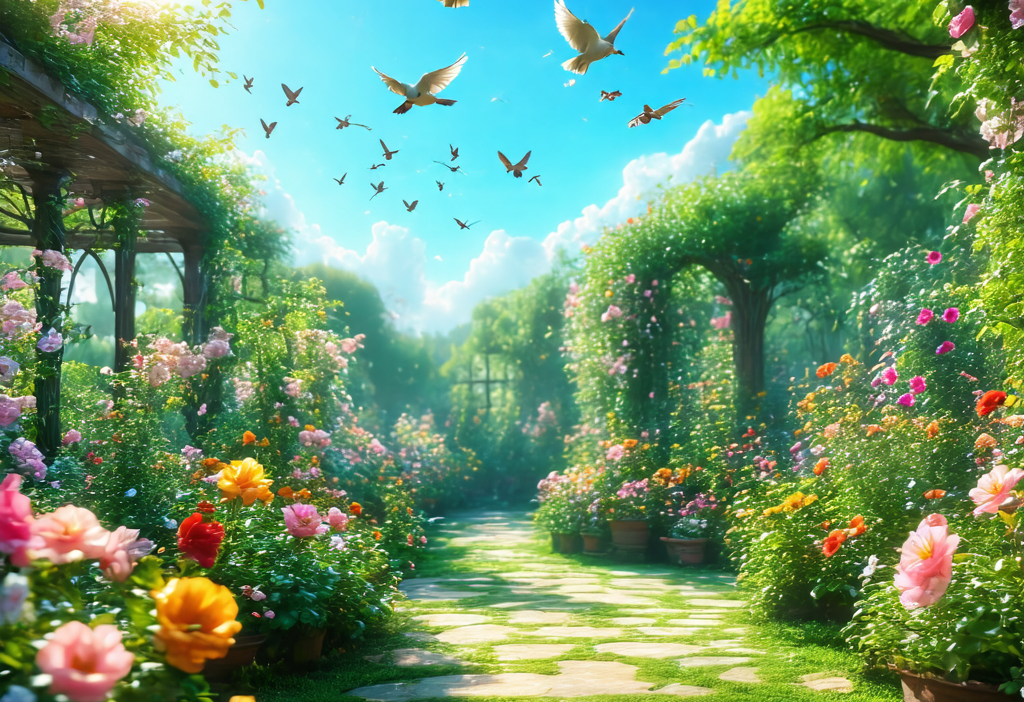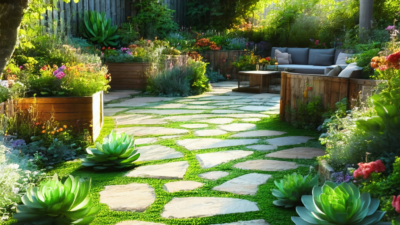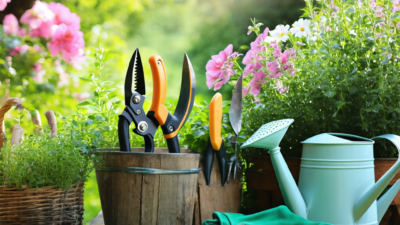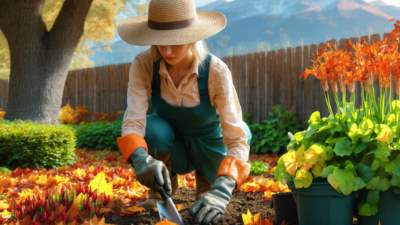Creating a Lush Garden: Expert Tips for 2025
Gardening is more than just planting seeds; it’s about creating a sanctuary that nourishes both the soul and the environment. In 2025, with advancements in gardening techniques and sustainable practices, there’s never been a better time to transform your outdoor space into a thriving oasis. Whether you’re a seasoned gardener or a newbie, this guide will walk you through expert tips to help you create a lush garden that will be the envy of your neighborhood.
1. Start with the Right Plants
The foundation of any successful garden lies in choosing the right plants. Consider your climate zone and soil type when selecting flora. For instance, if you live in an area with harsh winters, opt for cold-hardy perennials like lavender or chrysanthemums. If you’re in a warmer region, succulents and cacti might be a better fit. Remember, the key is to select plants that thrive in your specific environment.
Tip: Visit local nurseries or consult gardening experts like those at Gardening Know How for plant recommendations tailored to your area.
2. Prepare Your Soil
Healthy soil is the backbone of a flourishing garden. Test your soil’s pH level and nutrient content using a home testing kit or through local agricultural extension services. Amend the soil with compost, manure, or other organic materials to improve fertility and drainage. Well-prepared soil ensures that your plants receive the nutrients they need to grow strong and vibrant.
Pro Tip: Incorporate worm castings into your soil for an eco-friendly boost of essential nutrients.
3. Embrace Companion Planting
Companion planting is a smart way to maximize your garden’s productivity while minimizing pests and diseases. Certain plants thrive when grown alongside specific companions. For example, marigolds repel nematodes and attract beneficial insects, making them ideal companions for tomatoes. Likewise, basil can enhance the flavor of nearby vegetables while deterring pests like mosquitoes.
Did You Know? Some native tribes used companion planting techniques long before modern agriculture, as noted by National Geographic.
4. Water Wisely
Overwatering is a common mistake that can harm your plants more than under-watering. Use a moisture meter to determine when and how much to water. Drip irrigation systems are an excellent way to deliver water directly to the roots, reducing evaporation and ensuring efficient use of resources.
Water-Saving Tip: Collect rainwater using barrels for a sustainable watering solution, as recommended by EPA.
5. Attract Beneficial Wildlife
Your garden isn’t just for you—it’s also a habitat for pollinators like bees and butterflies. Plant native flowers, install bird feeders, and create habitats with brush piles or birdhouses. These creatures play a vital role in pollination, ensuring the health of your garden.
6. Maintain Regularly
Gardening is an ongoing process that requires regular maintenance. Weed early and often to prevent them from overtaking your plants. Deadhead flowers to encourage more blooms and prune shrubs and trees to maintain their shape and health. A little time spent each week can make a big difference in the overall appearance and productivity of your garden.
7. Use Natural Pest Control
Instead of reaching for chemical pesticides, opt for natural solutions. Introduce ladybugs to combat aphids or use neem oil as a safe, organic pesticide. Companion planting can also help deter pests without harmful chemicals.
8. Experiment and Innovate
Gardening is an art that encourages creativity. Don’t be afraid to experiment with new plants, layouts, or techniques. Vertical gardening, hydroponics, and container gardens are innovative approaches that can work wonders in small spaces.
9. Stay Informed
Gardening trends and techniques evolve over time. Keep yourself updated by following expert blogs like The Old Farmer’s Almanac, attending local gardening workshops, or joining online communities for tips and inspiration.
10. Enjoy the Process
Gardening is a journey filled with learning, growth, and joy. Take pride in your accomplishments, whether it’s a bountiful harvest or a beautiful bloom. Every season offers new opportunities to learn and improve, making gardening a lifelong adventure.
By following these expert tips, you’ll be well on your way to creating a lush garden that not only enhances your outdoor living space but also contributes positively to the environment. Happy planting!





